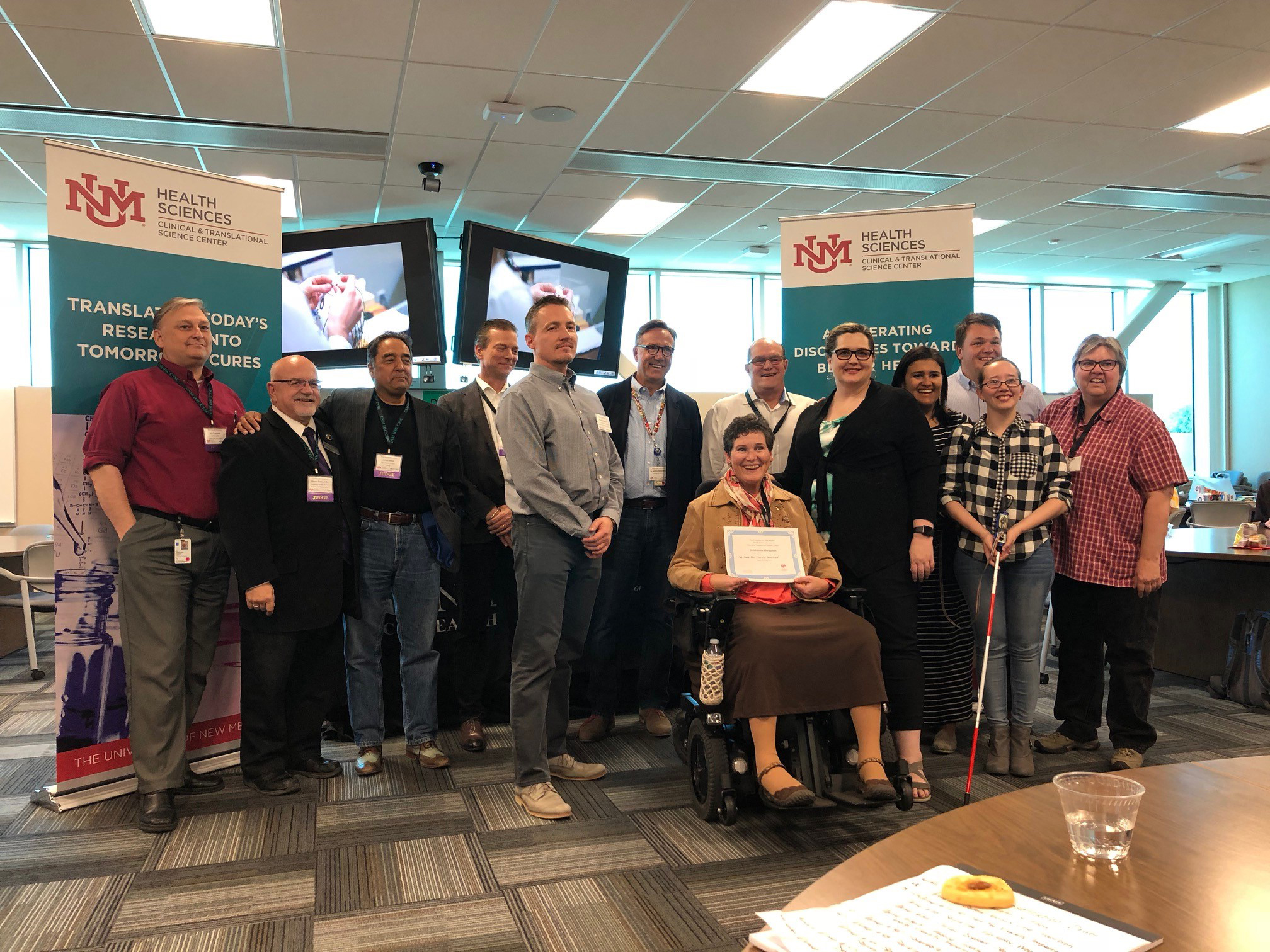Recent News
UNM Engineering team wins ASEE best paper for work on first-year engineering course
July 17, 2025
New director will enhance interdisciplinary engineering learning opportunities
July 2, 2025
Final SIRI cohort visits UNM campus
June 30, 2025
Perfetti receives ANS Landis Engineering Achievement Award
June 26, 2025
News Archives
UNM HSC Health Hackathon planned Feb. 21-23, now accepting applications
January 6, 2020 - by Kim Delker
The University of New Mexico-Health Sciences Center Health Hackathon, an opportunity for both novice and experienced inventors to use their skills and creativity to develop innovative healthcare solutions, will be held Feb. 21-23 on the UNM campus.

Above: In 2018, Professor Heather Canavan’s team developed the Visi Stik, which they described as a 3D cane for people with impaired vision.
The second annual event — where teams pitch healthcare problems and then form teams to develop solutions — will be held at the Domenici Center for Health Sciences Education North Wing, 1001 Stanford Drive NE, Albuquerque. It is presented by the UNM Clinical and Translational Science Center and supported by STC.UNM and the Center for Innovation in Health and Education. Sponsors include the School of Engineering and the College of Pharmacy.
The purpose of the event is to stimulate innovation in health care by promoting collaborations that could result in new and unique research prototyping and development that could help in treating, curing or preventing diseases, said organizer Christina Salas, an assistant professor in the Department of Orthopaedics and Rehabilitation.
“This is a good place to learn new skills and concepts from those in other disciplines, with mentors on hand to assist,” said Salas, who is also a special assistant to the dean of engineering for Health Science Center relations. “Health Hackathon is a fun, stimulating event, and we hope to attract a vibrant group of technical and creative thinkers.”
Applications are now being accepted online. Students, faculty and community members are invited to participate. Participants need no technical or coding expertise, nor do they need to have a pre-existing idea before the event.
Those with nearly all skillsets are welcome to attend, including those with backgrounds in business, the medical field, coding, engineering, entrepreneurship, programming, science and design. Participants do not need to have a team to participate. At the event, participants without a team will have the opportunity to form teams based on skillsets and interests.
Last year’s event attracted about 70 participants.
During the three-day event, teams will present healthcare problems, then teams made up of five to eight participants strategize to develop solutions. Materials will be provided, including computers, microprocessors (Arduino and Raspberry Pi devices), 3D printers and various art supplies.
The initial day begins with a social from 5-9 p.m. during which participants can pitch ideas to attract a complementary teammate, and then forming teams. The second and third days will involve teams working to develop prototypes, with final pitches and prizes being award at the end of the final day.
Participants are encouraged to attend all three days, but it is not required, Salas said.
The faculty of the winning teams will be eligible to apply for grants from the Clinical and Translational Science Center of up to $10,000 to help bring their ideas to life. Undergraduate- or graduate-level credit may be possible.
New this year is a Hackathon bootcamp, which will be held 5:30-7:30 p.m. Jan. 28 at the Lobo Rainforest. The event will provide information about the Hackathon, both for those registered for the event or who are considering registering. The bootcamp will also include information on pitching business ideas and in design thinking.
For more information about Hackathon, contact Maren Krake Dalton at MKrakeDalton@salud.unm.edu. For questions or information about the bootcamp, contact Robert DelCampo, executive director of UNM’s Innovation Academy, at delcampo@unm.edu.
